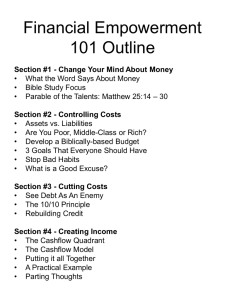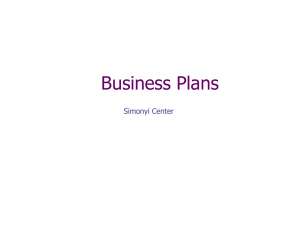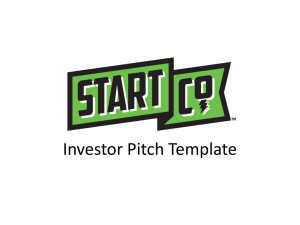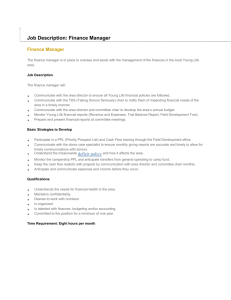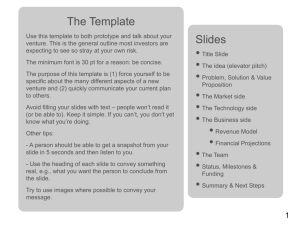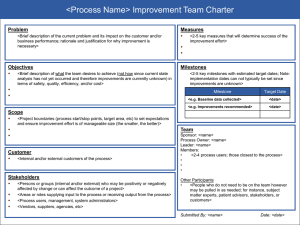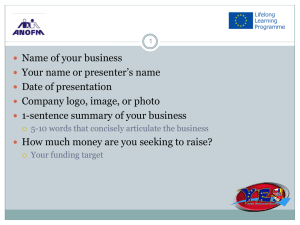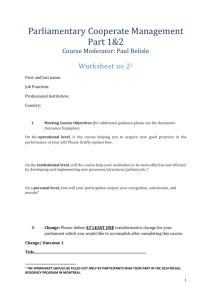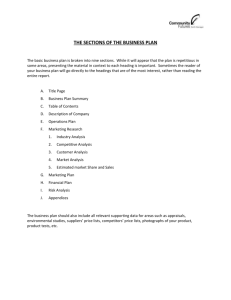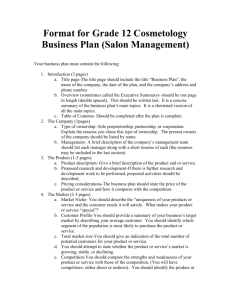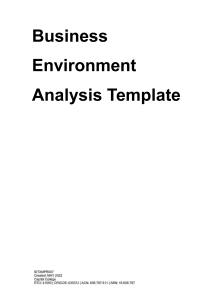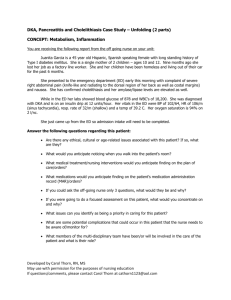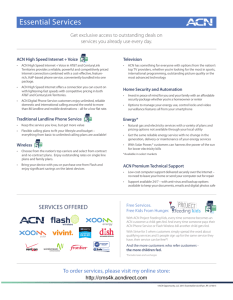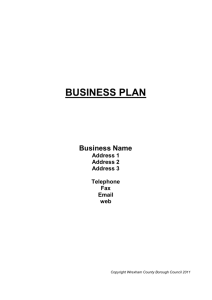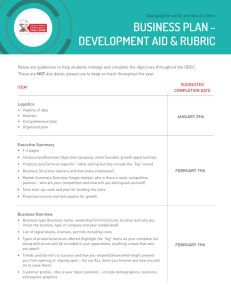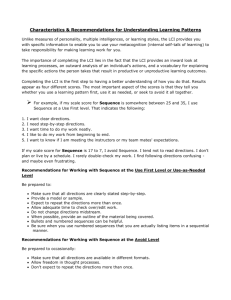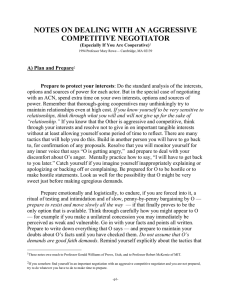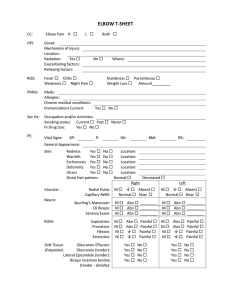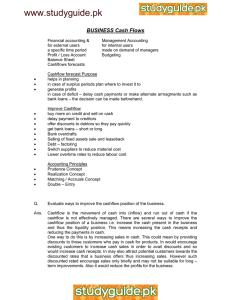Free business-plan template
advertisement
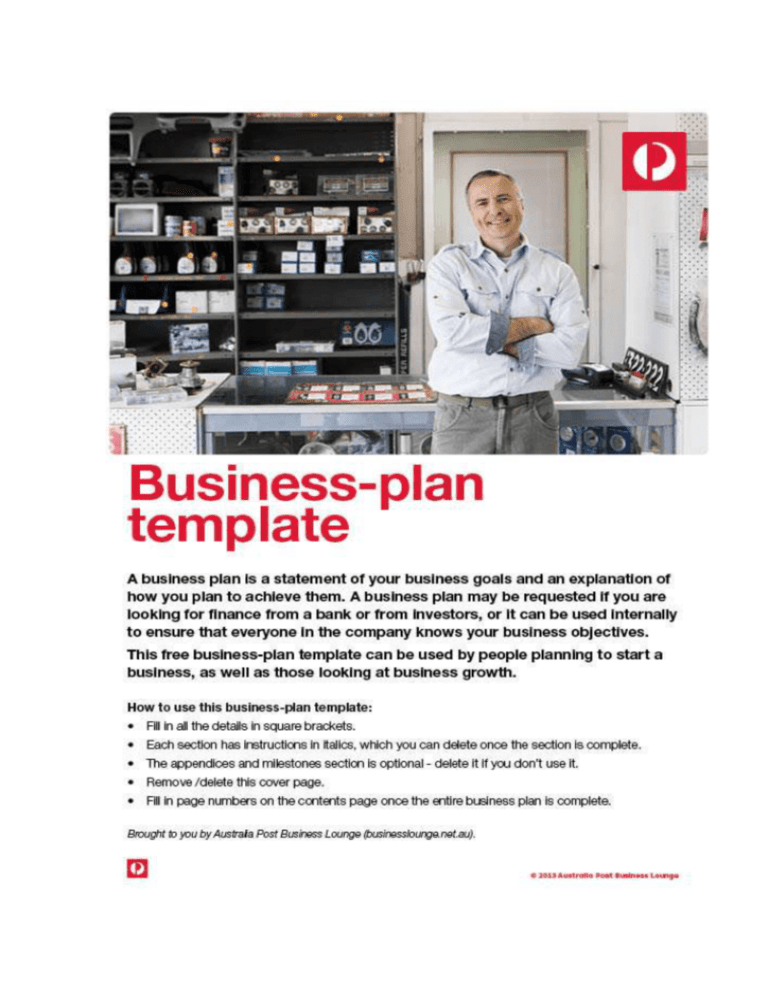
[Your name] [Your title] [Business name] [Main business address] ABN: [ABN] ACN: [ACN] Business plan Prepared by: [your name] Contents 01. Executive summary <pp> 02. Business overview <pp> 03. Products / services <pp> 04. Market analysis <pp> 05. Competition <pp> 06. Marketing strategy <pp> 07. Business structure and management <pp> 08. Finances <pp> 09. Appendices and milestones <pp> 01. Executive summary What is an executive summary? The executive summary is a snapshot of your business. It should be a maximum of two pages long. Because you’ll be drawing on the details from later sections of the business plan to write the executive summary, you might prefer to do this section last. Summarise the key points about your business: What you will be offering and where. Who will be managing and staffing the business. Your market and target customer. The competition. Your marketing plan. Financial projections. You will provide more details on each of these topics in later sections of the business plan, so don’t go into too much detail here. The executive summary should be brief, simple and confident. 02. Business overview In this section, aim to answer the following questions: What are your products / services? What industry do you operate in? For an existing business, how long have you been operating? How do you differ from your competitors? Why would customers choose you? Where do you anticipate that the business be in two to five years? How do you plan to achieve these objectives? 03. Products / services In this section, answer the following questions: What are your products / services? For products, how and where will they be produced? For services, who will be performing the service? What arrangements do you have in place with suppliers? What will the branding and product / packaging look like? How do your services / products compare to the competition? (Price, quality and unique characteristics, for example.) What is your pricing structure? How do you plan to develop your product / service range? 04. Market analysis In this section, you need to demonstrate your understanding of your industry and market. Make sure you have done your research. Aim to touch on the following areas: Who is your target customer? (You may want to draw up a customer profile, including age range, income, family type, life stage and so on.) Where are your customers located? (Local, international, urban, rural and so on.) What is the market doing? (Is it growing, declining or becoming segmented?) What market trends are you seeing? Do you anticipate any seasonal business fluctuations? How do your prices and services / products compare to what’s currently on offer to your target customers? 05. Competition In this section, describe the competition in the market: Who are your competitors? How will your business be positioned against them? How does your product / service compare to theirs? What makes your product / service different or superior? Why would your target customer choose you? How does your pricing compare to the competition? Will your business be promoting itself or distributing products differently? 06. Marketing strategy In this section, you need to explain how your target customer will find out about your business. Consider the following points: If you are starting a new business, how are you planning to launch it? Where, how and when will you be promoting your business? What is your marketing budget and how are you planning to allocate it? (For example, will you be using direct mail, social media, radio, outdoor advertising and so on?) What printed materials will you be using? What online presence will you have? (Will you have a website, Facebook page, Twitter account or a presence on other digital channels and platforms How will you assess how effective different media and promotions have been? 07. Business structure and management In this section, you need to describe the formal and legal structure of your business. What is your ownership structure: are you a sole trader / partnership / company? Why did you choose this structure? Who are your key staff? What do your key staff do and what is their salary range? Do you have any patents, trademarks or other intellectual property the business must protect? Do you need to put any legal agreements in place with owners, investors, suppliers or other key stakeholders? What is your succession plan or exit strategy? (Do you plan to pass on the business to your children, sell your shares, liquidate?) 08. Finances This section is particularly important if you are looking for business finance from the bank or from investors. Make sure you answer the following questions: How are you planning to finance your business? (This might include a business loan, personal savings, investment capital and so on.) What are your costs, including any start-up costs, salaries and overhead costs? How much will you need to make to break even? Based on financial projections, when do you expect to make a profit? How do you anticipate the business growing? What is your forecasted cashflow? For a new business, what are your establishment costs? For an existing business, include your financial statements (profit and loss, balance sheet or cashflow). 09. Appendices and milestones Here, you may want to include additional information, such as a SWOT (Strengths, Weaknesses, Opportunities, Threats) analysis to look at positive and negative influences on your business, a PEST (Political, Economic, Social, Technological) analysis to examine macro-environmental impacts, or even a business action plan, outlining key objectives with deadlines.
